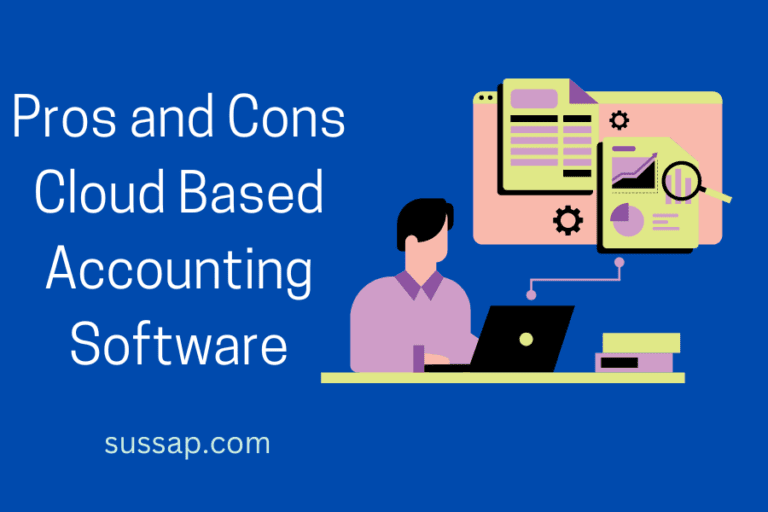Picture yourself driving a car without a dashboard. You have no way of knowing how fast you’re going, how much fuel is in the tank, or if the engine is about to overheat. Pretty frightening, wouldn’t you agree?
Similarly, running a business without proper accounting can be just as disconcerting. Accounting provides you with a comprehensive insight into your business, acting as the dashboard that keeps you on track. It provides you with critical insights into your financial state, so you can make informed decisions that will benefit your company.
This article will examine eight factors that make accounting essential to the success of your company and explain how skipping accounting steps can spell trouble. So, buckle in as we explore the world of accounting and its significance for your company.

1. Helps Track Finances
Accounting helps track the financial performance of your business by keeping records of all transactions. Managing your business and ensuring it is successful in the long run depend on maintaining accurate financial records.
Accounting is the process of recording, classifying, and compiling financial transactions to produce financial statements that unmistakably demonstrate your company’s financial health.
Keeping track of your finances enables you to identify your sources of income, calculate your expenses, and determine if your business is profitable. You can keep an eye on the money coming in and going out of your company, or cash flow.
Additionally, accurate financial records help you prepare for audits, inspections, and tax assessments. Having organized and up-to-date financial statements can easily demonstrate your business’s financial position and compliance with regulations. This can help you avoid penalties, fines, and legal issues.
2. Facilitates Tax Compliance
Tax regulations can be complex, and constantly changing, and failing to comply with them can result in significant financial penalties or legal issues. To make sure that your company complies with tax laws, accounting is essential.
You can easily determine your tax liabilities, prepare tax returns, and pay taxes on time by keeping accurate financial records.
Accounting also assists you in avoiding common tax blunders like underreporting income, failing to account for expenses, and filing tax returns after the deadline.
Furthermore, accounting provides the necessary financial statements to support your tax filings. These statements, such as balance sheets, income, and cash flow statements, clearly show your business’s financial position and performance.
You can avoid financial penalties, legal issues, and reputational damage by complying with tax regulations. You can win the trust of stakeholders like investors, clients, and suppliers by demonstrating that your business conducts itself ethically and responsibly.
3. Helps in Budgeting and Planning
Budgeting is the process of creating a financial plan for your business, while planning involves setting goals and strategies to achieve those goals. You can plan and set a budget for your business with the aid of accounting.
By maintaining accurate financial records, you can analyze your company’s past performance and make educated predictions about its future cash flow, revenue, and expenses.
Using this data, you can make a budget that supports the aims and goals of your company. You can plan your spending, control your cash flow, and use a budget to decide wisely about your investments and potential areas for growth.
Additionally, accounting software helps you monitor your budget and adjust it as needed. You can spot areas where you are overspending or underspending by comparing your actual financial performance with your budgeted performance and making the necessary adjustments.
Accounting also aids in identifying potential financial opportunities and risks. For instance, you might need to take corrective action if you notice a significant increase in expenses to prevent cash flow issues. On the other hand, accounting helps you assess the profitability of a potential investment in a brand-new undertaking or item.
4. Facilitates Decision Making
Accounting provides crucial financial information that can be used to make informed decisions about various aspects of your business.
For instance, accounting can help you make decisions about pricing, product mix, and sales strategies. You can determine the most lucrative goods or services and change your pricing or sales tactics as necessary by examining the financial data of your company.
Accounting can also help you evaluate the financial impact of different marketing campaigns or sales promotions.
Accounting also provides you with information about the financial position and performance of your business to make decisions about investments, financing, and expansion.
You can determine where to increase spending or make cost reductions by examining your financial statements. You can also evaluate different financing options and assess the financial risks and rewards of expanding your business.
Furthermore, accounting provides you with information about your business’s financial health and potential future performance.
Overall, accounting is essential for decision-making. By providing accurate financial information, accounting enables you to make informed decisions about pricing, product mix, sales strategies, investments, financing, and human resource management.
5. Helps Secure Financing
As a business owner, you may need financing to start, expand, or sustain your business. Financing for businesses can come from sources like banks, angel investors, or government programs. Accounting data provide potential lenders and investors with a crucial insight into your company’s creditworthiness and financial stability.
By reviewing financial information like your balance sheet, income statement, and cash flow statement, they can evaluate your company’s current financial health and its potential for future growth.
You can give lenders and investors a clear picture of the financial performance and potential of your company by keeping accurate accounting records. Your ability to negotiate better financing terms, such as lower interest rates or bigger loan amounts, will be aided by this information.
You will build credibility and trust with lenders and investors by being open and honest with them and using the right accounting terminology to describe your business.
6. Manage Cash Flow
The movement of money into and out of your company is known as cash flow, and it is crucial for running your company daily. Accounting gives you vital data about your cash flow to help you manage the finances of your business.
By maintaining accurate financial records, you can track your cash inflows and outflows and monitor your business’s cash balance. You can use this data to spot potential cash flow issues like a mismatch in cash inflows and outflows or a decrease in cash reserves.
Additionally, accounting helps you manage your business’s working capital. Working capital, which measures your company’s capacity to meet short-term obligations, is the difference between your current assets and liabilities.
By analyzing your working capital, you can identify areas where you need to improve your cash flow, such as by collecting receivables more quickly or extending payables.
Furthermore, accounting provides the necessary financial statements to assess your business’s liquidity and solvency. When assessing the financial health of your business, it’s important to evaluate both its liquidity and solvency.
Liquidity is the company’s ability to meet its short-term obligations, while solvency is its capacity to fulfill long-term ones. To accurately evaluate these two factors, take a look at your balance sheet and cash flow statement.
To ensure that your business always has the necessary cash reserve to meet its obligations and reach its goals, accounting is key. Make sure to keep accurate financial records, examine your cash inflows and outflows, properly manage your working capital, and continually assess your liquidity and solvency for effective cash flow management.
7. Enables Performance Evaluation
Accounting provides critical financial information that you can use to evaluate your business’s performance and make informed decisions about its future.
Studying your company’s financial statements can be used to assess its profitability, liquidity, and solvency.
Gauge your company’s fiscal success and benchmark it against competitors by utilizing financial indicators like debt-to-equity, return on investment (ROI), and gross profit margin. Utilizing accounting practices also allows you to track your business’s financial progress over time.
By comparing financial statements from different points in time, patterns and trends can be identified and analyzed to make informed decisions about operations.
For instance, using financial budgets and forecasts to set goals for sales, expenses, and profits and then tracking progress towards these goals using financial reports and analysis can help guide strategy.
8. Promotes Transparency and Accountability
Accounting provides a transparent and accurate record of your business’s financial transactions and performance, which can help you build trust and credibility with stakeholders, including investors, lenders, employees, and customers.
Accurate financial records and financial statements give stakeholders a comprehensive overview of your business’s financial performance and potential. This can create trust in your company and encourage investors and lenders to provide financing.
Moreover, accounting provides an effective tracking system for your business’s financial transactions, helping to ensure their accuracy and transparency. Good accounting practice can help avoid fraud and other financial misconduct, preserving your business’s credibility and financial stability.
Moreover, accounting provides stakeholders with the data they need to make educated decisions regarding your business. For example, customers can use the financials to assess their creditworthiness while employees may use them to negotiate a better compensation package.
Finally, good accounting practices enable you to meet legal and regulatory obligations, such as those relating to taxes and financial reporting.
Conclusion
To sum it up, accounting is the foundation of any successful business. It serves as a tool for monitoring financial performance, identifying areas of improvement, and making strategic decisions.
Without proper accounting practices in place, businesses risk financial instability, legal troubles, and ultimately failure. From maintaining accurate records to adhering to financial regulations, accounting is essential for a business’s smooth functioning and growth.
Good accounting practices are key to business success. By investing in the right resources, businesses can gain a competitive edge, reduce risk, and reach their goals. In other words, accounting isn’t just essential; it’s a valuable asset that can propel any business toward growth and prosperity.
Also Read:





![7 Best Accounting Software For Small Business [In 2024]](https://sussap.com/wp-content/uploads/2023/02/Best-Accounting-Software-For-Schools-2-768x512.png)
